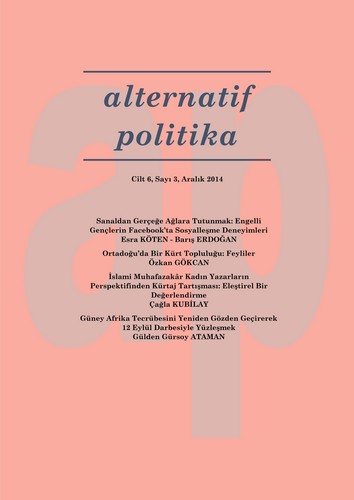Güney Afrika Tecrübesini Yeniden Gözden Geçirerek 12 Eylül Darbesiyle Yüzleşmek
Coming to Terms with the 12 September Coup D’état: The South African Experience Reconsidered
Author(s): Gülden Gürsoy AtamanSubject(s): Law and Transitional Justice, Social history, Studies in violence and power, Sociology of Law
Published by: Rasim Özgür DÖNMEZ
Keywords: Transitional justice; truth commissions; prosecution; the South African Truth and Reconciliation Commission; 12 September 1980 Coup D’état Trial;
Summary/Abstract: The objective of this article is to determine whether particular processes, mechanisms and principles employed to deal with the past in one society can be applied to another with a different legacy of past abuses. This question will be answered by analyzing applicability of some of the practices and principles of the South African Truth and Reconciliation Commission to Turkey where there are an ongoing prosecutions regarding the 12 September 1980 Coup D’état. It concludes that “truth commission” as a transitional justice measure can be adopted in Turkey and complement trials due to the limitations and shortcomings of the indictment and prosecution process. However, only certain aspects of the South African TRC can be relevant for a future truth commission in Turkey, as there is no one-size-fits-for-all model for transitional justice and as the practices and the principles of the South African TRC is historically and politically contingent. It is argued that that the public, institutional and thematic hearings should be core elements of a future truth commission in Turkey as they have a capacity to demonstrate broader social context of large-scale abuses and to establish collective responsibility regarding the 12 September 1980 coup d’état as well as to create a space for victims’ to share their plight. New truths to guide the society should be adopted as they enable the representations or reinterpretation of the facts, which were used to justify systemic use of violence and, therefore, show that these abuses are not justified. However, granting individualized amnesty for crimes against humanity should not be embraced it may not conform to international law and by contributing to on-going legacy of impunity, it might cause serious problems in terms of achieving reconciliation.
Journal: Alternatif Politika
- Issue Year: 6/2014
- Issue No: 3
- Page Range: 422-455
- Page Count: 34
- Language: English

